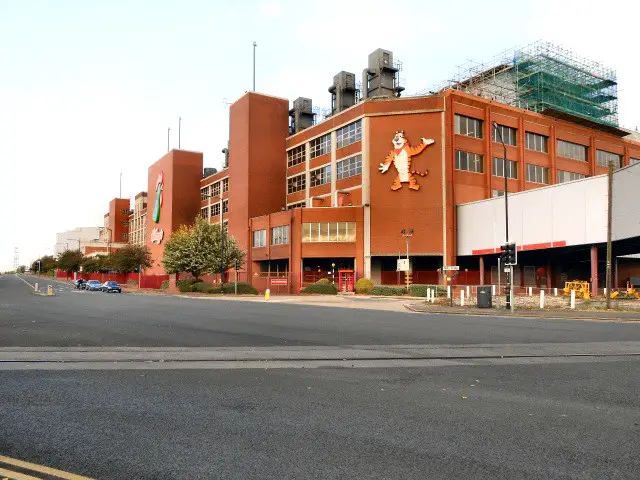Manchester, UK – May 18, 2024: In a significant blow to the local economy, Kellogg’s has announced the impending closure of its Trafford Park factory, a decision that will lead to the loss of 360 jobs. This historic facility, which has been a cornerstone of the community since its establishment in 1938, will cease operations by the end of the year.
**Reasons for Closure**
Kellogg’s cited the need to streamline its operations and reduce costs in an increasingly competitive market as the primary reasons for the closure. The company has faced mounting pressure to optimize its supply chain and improve efficiency across its global operations. This strategic shift aims to consolidate production in fewer locations, thereby reducing overheads and leveraging economies of scale.
A spokesperson for Kellogg’s stated, “This has been an incredibly difficult decision, but it is necessary to ensure the long-term sustainability of our business. We are committed to supporting our employees through this transition and will be providing comprehensive severance packages, as well as assistance with job placement and retraining opportunities.
**Impact on Employees and Community**
The closure will significantly impact the local community, with 360 employees set to lose their jobs. For many, this factory has been more than just a workplace; it has been a part of their lives and the community’s identity for generations.
Local MP Angela Rayner expressed her deep concern over the job losses, saying, “This decision is devastating for Trafford Park and the surrounding areas. Kellogg’s has been an integral part of our community for over 80 years. The loss of these jobs will affect hundreds of families and the local economy. We will be working closely with local authorities and employment services to provide support to those affected.”
**Historical Significance**
The Trafford Park factory is one of Kellogg’s oldest and most iconic manufacturing sites, producing a wide range of breakfast cereals enjoyed by millions of households across the UK. Over the decades, the factory has become synonymous with Trafford Park’s industrial heritage and has played a crucial role in the local economy.
**Future Prospects**
As Kellogg’s shifts its production to other facilities, the future of the Trafford Park site remains uncertain. There are concerns about the potential for long-term unemployment in the area and the broader economic impact on local businesses that have historically relied on the factory and its employees.
Economic experts suggest that redevelopment of the site could provide a pathway to economic recovery. However, this would require significant investment and a clear vision from local government and private stakeholders to repurpose the site effectively.
**Conclusion**
The closure of Kellogg’s Trafford Park factory marks the end of an era for Manchester and highlights the challenges faced by manufacturing industries in adapting to global economic pressures. As the community grapples with the fallout, the focus will now shift to mitigating the impact on affected workers and exploring opportunities for economic regeneration in the area.
